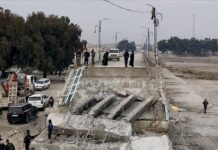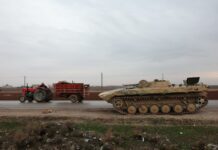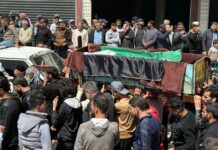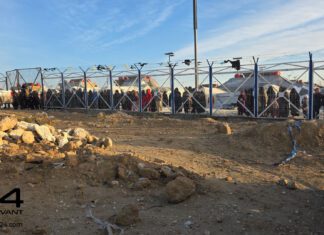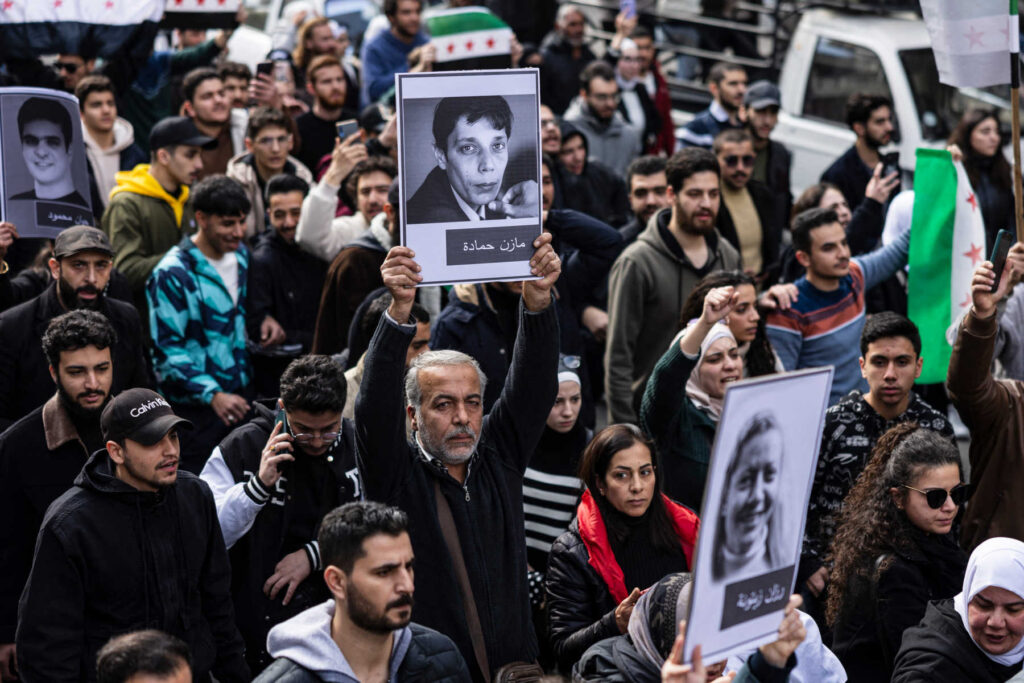
In a recent Press conference, Tuesday, June 10, Syrian officials explained the release of former regime officers as a necessary step for “civil peace,” meanwhile human rights groups were critical of the move as many victims continued to demand justice.
“Trust Measures” or Impunity?
Interior Ministry spokesman Nouruddin al-Baba confirmed that 123,000 former regime personnel were implicated in crimes against Syrians but argued that some officers who later cooperated with revolutionary forces deserved leniency. “These individuals neutralized military units, accelerating Syria’s liberation,” he said, thus preventing bloodshed during the Repelling the Aggression Operation which liberated the country last December.
Hassan Soufan of the Supreme Committee for Civil Peace echoed this, stating released officers had surrendered voluntarily and faced investigations without war crime charges. “Their detention lacked legal basis,” he said, calling the releases a “trust-building” measure but insisting they were “not a substitute for transitional justice.”
Cautious Criticism
Fadel Abdulghani of the Syrian Network for Human Rights (SNHR) criticized the decision, warning it “fuels resentment and revenge.” He told Syria TV that releases without judicial oversight “undermine victims’ faith in justice,” citing cases like Fadi Saqr, the former commander of the National Defense Forces (NDF), linked to massacres. “The government has no authority to bypass courts,” he said, urging trials for all perpetrators.
Information Minister Hamza al-Mustafa acknowledged the backlash but stressed the releases were provisional. “We distinguish between civil peace and justice,” he said, pledging a transitional justice roadmap soon. Despite government efforts critics like Abdulghani remain skeptical, with warnings that without transparency, Syria risks “a new cycle of violence”—a challenge officials concede as they navigate the fragile post-war landscape.
Balancing Stability and Accountability
The government faces mounting pressure to reconcile stability demands with accountability. Baba vowed to recover stolen assets and prosecute war criminals via Interpol, while Soufan admitted the releases were imperfect but “necessary for now.”
The Syrian government insists its dual-track approach—prioritizing short-term stability while pledging long-term justice—is the only viable path forward. Mustafa framed officer releases as a “first-aid measure” for regions like the coast, where tensions remain high. “We cannot rebuild a nation amid perpetual strife,” he argued, citing the risk of external interference if state institutions appear fractured.
Soufan elaborated that civil peace efforts—including community reconciliation and discreet negotiations—are precursors to formal justice. “A turbulent atmosphere guarantees neither fair trials nor reparations,” he said, noting that the Civil Peace Committee’s non-public work has already prevented outbreaks of violence. The government also seeks to avoid the pitfalls of rushed prosecutions; Mustafa referenced post-apartheid South Africa’s model, where truth-telling preceded prosecutions.
Officials do acknowledge the precariousness of the situation. Mustafa admitted Fadi Saqr’s release was “problematic” and said public outrage might force policy revisions. Baba, meanwhile, stressed that transitional justice will eventually encompass all crimes, with recovered assets funding reparations. “Every Syrian life lost is accounted for,” he pledged.

